In this article:
Have you ever wondered why your dentist examines your tongue during a dental checkup? It’s because your tongue can reveal quite a bit about your dental and overall health.
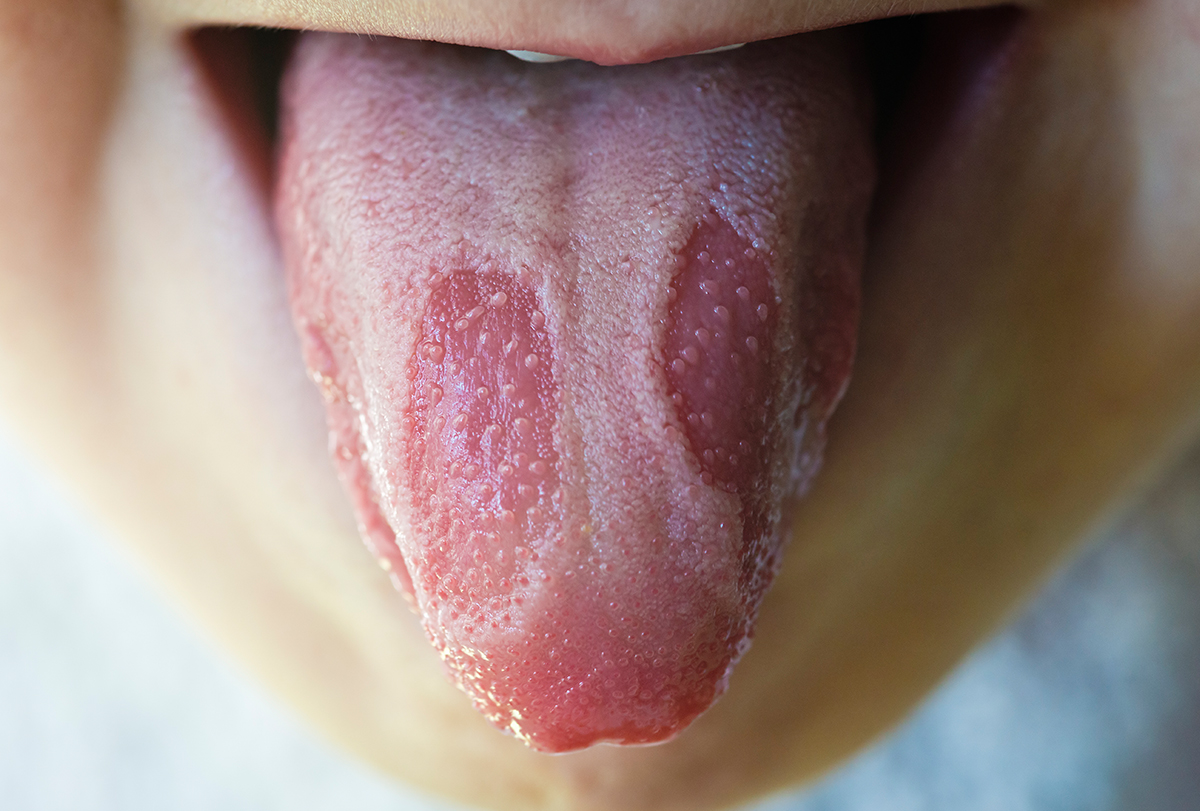
The tongue may not seem like it, but it is a very important organ of the body. It helps in speech articulation, chewing, tasting, swallowing food, etc. It is made up of muscle and has some lingual papillae and taste buds on its surface.
Your tongue is the only visible part of the digestive system and can give you an insight into the body’s metabolic and digestive health. (1)
Doctors or nurses usually examine your tongue as part of a normal physical checkup to look for any indicators of your health. We may not be able to notice these but doctors generally do.
The color, texture, and other characteristics of your tongue can be a signal of underlying conditions. Read on to take a deeper look at what your tongue can reveal about you.
What Your Tongue Reveals About Your Health
Any abnormalities on your tongue can disclose a lot of information about your general health. However, some tongue abnormalities are birth defects. The most common malformations are:
- Aglossia: A rare condition in which the tongue of a baby is not developed properly before birth and the person is born without a tongue (2)
- Microglossia: An abnormally small tongue at birth. (3)
- Macroglossia: An abnormally large tongue, which may be a symptom of cretinism or Down syndrome (4)
Apart from these, here are some indicators you may want to watch out for:
1. Lumpy white bumps
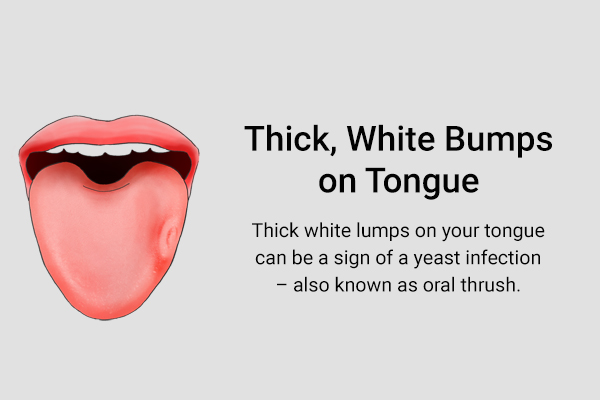
Thick white lumps on your tongue can be a sign of a yeast infection, also called oral thrush. It causes a white cheesy buildup on the tongue.
Oral thrush can be due to underlying conditions such as diabetes, compromised immunity, and antibiotic usage.
Your doctor may prescribe an antifungal medication to treat it. (5)
2. Brown or black and hairy tongue
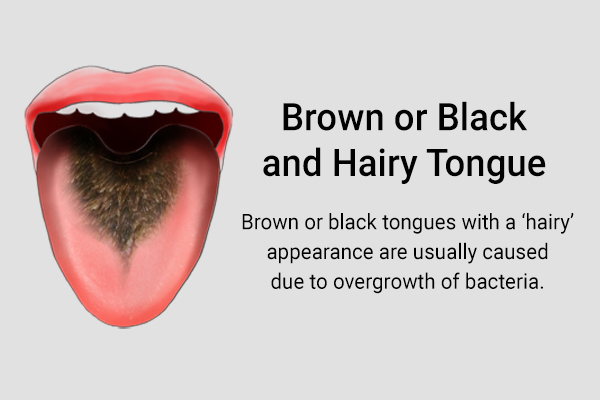
A brown or black tongue with a “hairy” appearance is usually caused by an overgrowth of bacteria. The hairy texture is due to elongated papillae on the tongue’s surface that accumulate bacteria.
This condition may lead to severe halitosis or bad breath. Maintaining proper oral hygiene by brushing, flossing, and scraping the tongue regularly can help treat this condition.
You may want to visit a dentist or an oral hygienist for a proper diagnosis. (6)
3. Sore spots
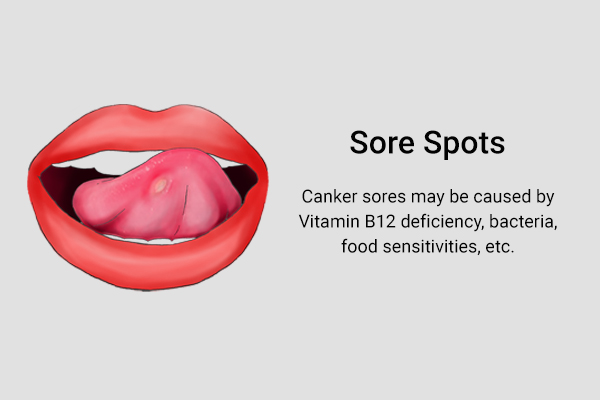
Canker sores are small sores that can occur anywhere in the mouth. They are painful and may last for 8–10 days at a time.
Canker sores may be caused by vitamin B12 deficiency, (7) bacteria, food sensitivities, etc. They usually do not need treatment, although you can use OTC gels to reduce the burning or pain.
If a sore does not seem to heal after 3–4 weeks, you may want to see a doctor as it can be a sign of a more serious condition.
4. Unevenness, peaks, and valleys
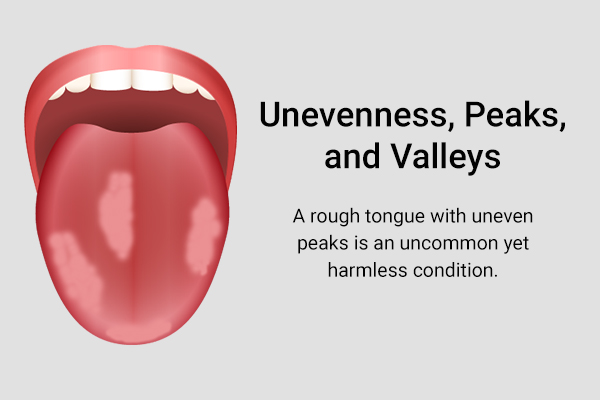
A rough tongue with uneven peaks is an uncommon yet harmless condition that affects nearly 14% of people. It is also known as “geographic tongue” and does not require any treatment. (8)
5. Strawberry-red hue
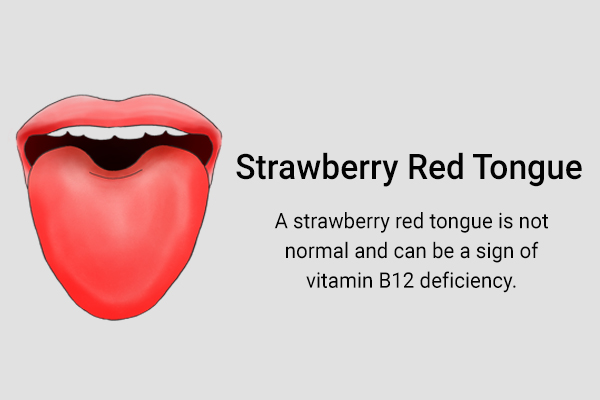
A strawberry-red tongue is not normal and can be a sign of vitamin B12 deficiency. Vegans and vegetarians who do not get enough vitamin B12 can develop a bright-red smooth tongue. It is also linked to anemia.
Other conditions that can cause an unnaturally bright-red tongue are Kawasaki disease (inflammation of the blood vessels in children) and scarlet fever. (9)(10)
Moreover, iron deficiencies can lead to a painful burning sensation on the tongue and cause it to become abnormally bright red. (7) Iron deficiency is a common condition, especially among women.
6. Wrinkles on the tongue surface
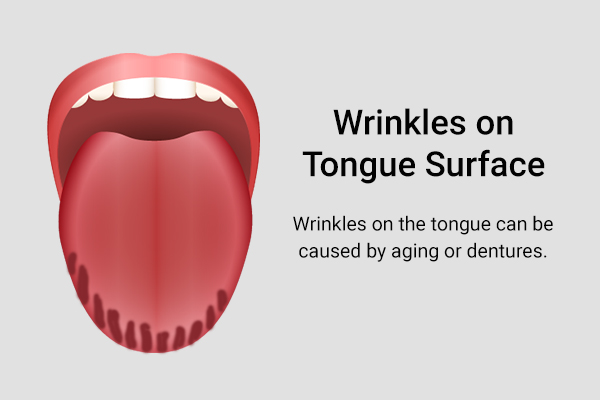
Wrinkles on the tongue can be caused by aging or dentures. Your tongue can develop wrinkles just like the rest of your body.
It is important to maintain proper hygiene and clean your tongue regularly to avoid fungal or bacterial infections in the tongue crevices.
7. Thick, yellow coating
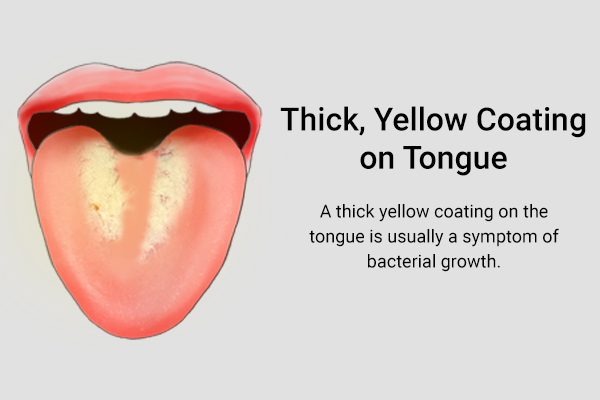
A thick, yellow coating on the tongue is usually a symptom of bacterial growth. You may want to invest in a good tongue cleaner and use it regularly to get rid of the coating on your tongue. Other causes may include excess body heat or heart disease.
Research suggests that many stroke patients (214 out of 378 study subjects) developed a thick, yellow coating on the tongue prior to a stroke.
You may want to consult a doctor if the yellow coating recurs even after cleaning. (11)
8. Burning sensation
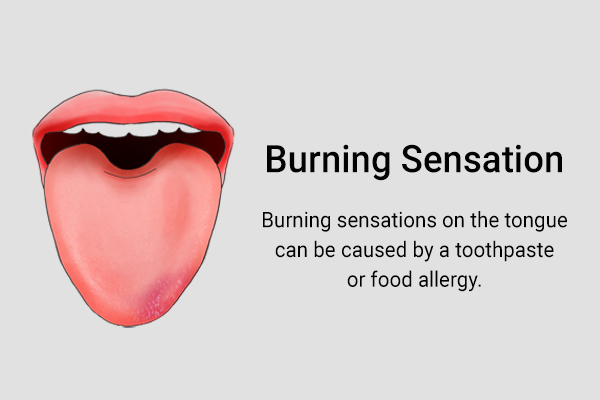
Burning sensations on the tongue can be caused by a toothpaste or food allergy. Sodium lauryl sulfate (SLS) found in toothpaste tends to cause burning.
Hormonal changes can also lead to a burning sensation on the tongue. It is a common problem experienced by women during menopause. (12)
9. Fissures
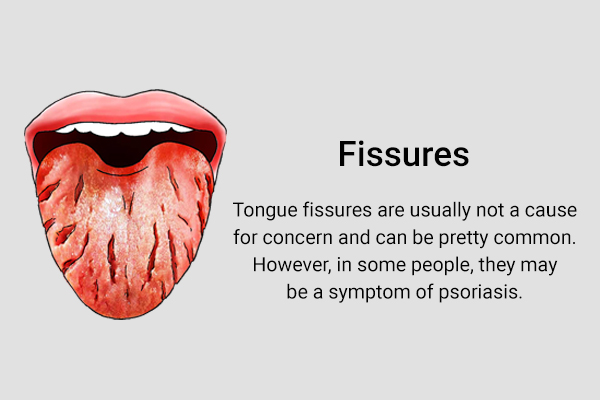
Tongue fissures are cracks or furrows on the tongue’s surface. They are usually not a cause for concern and can be pretty common. However, in some people, tongue fissures may be a symptom of psoriasis. (13)
10. Purple tongue
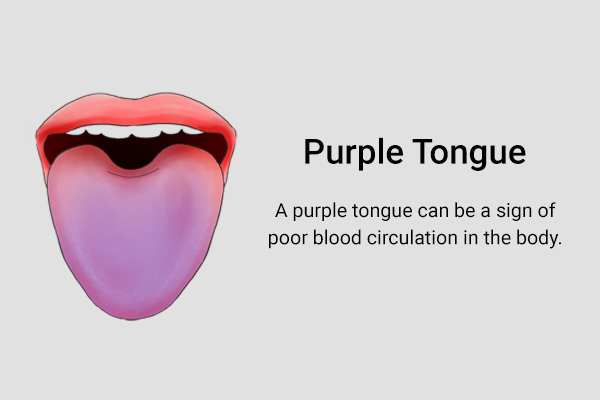
A purple tongue can be a sign of poor blood circulation in the body. Poor blood circulation can occur due to a number of factors such as obesity, blood clots, and chronic conditions such as hypertension and diabetes. (14)
11. Lacerations
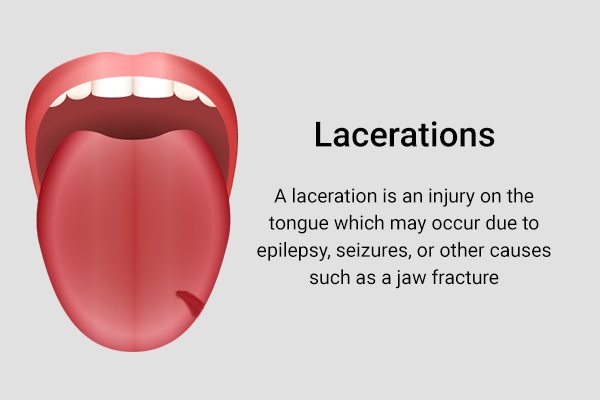
A laceration is an injury on the tongue that may occur due to epilepsy, seizures, or other causes such as a jaw fracture. (15)
12. Tongue ulcers due to infections
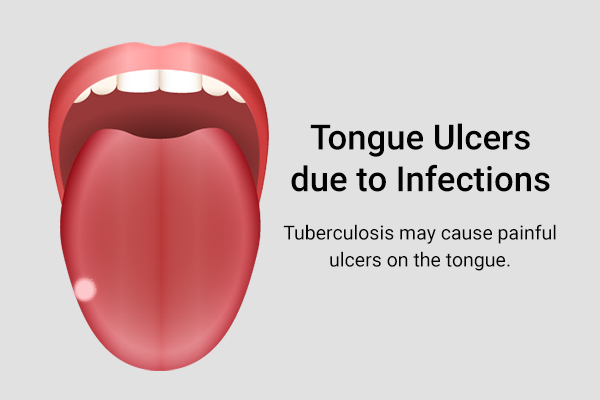
Tuberculosis may cause painful ulcers on the tongue. (16)
13. Lesions
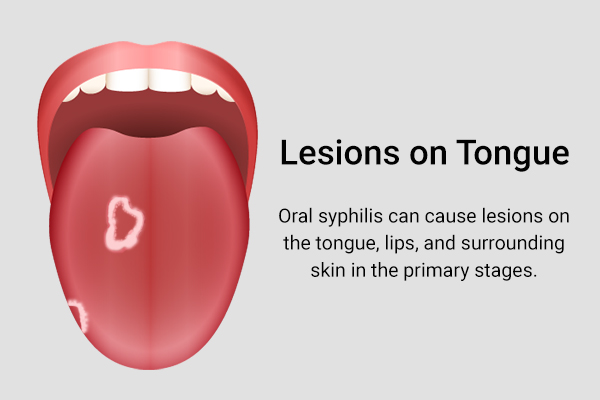
Syphilis is a sexually transmitted infection that can be very harmful if left untreated. Oral syphilis can cause lesions on the tongue, lips, and surrounding skin in the primary stages.
Tertiary stages of the disease may put you at increased risk of developing tongue carcinoma. (17)
Tips for Tongue Care
Here are a few tips to properly take care of your tongue:
1. Observe proper tongue hygiene:
Tongue hygiene is important for your oral health. Using mechanical cleaning methods such as toothbrushes and tongue scrapers is an effective method for cleaning the tongue. (18)
2. Quit smoking or chewing tobacco
Tobacco significantly increases your risk of developing mouth cancers. Hence, people who smoke or chew tobacco should try their best to quit and also get screened regularly at the dentist’s office. (19)
3. Maintain adequate hydration
Dehydration can cause changes in the color of your tongue. It is important to drink lots of water throughout the day for your oral and general health. (20)
When to See a Doctor
Consult a doctor as soon as possible if you notice any of these symptoms:
- Soreness on the tongue that lasts for more than a couple of weeks
- A lump on your tongue that does not seem to go away even after weeks
- A color change of your tongue to black or white
- Pain in the tongue
Your doctor may inquire about your medical history, any medications you have taken or are taking currently, and whether you smoke, consume tobacco, drink alcohol, etc.
Final Word
The color and texture of your tongue can be a good indicator of your health – especially oral health. Apart from the factors listed above, unhealthy habits such as smoking, excessive drinking, and tobacco consumption can also affect the appearance of your tongue.
- Was this article helpful?
- YES, THANKS!NOT REALLY


